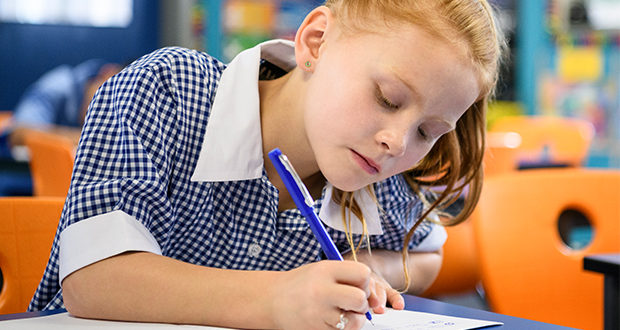Australian schools should learn how to use artificial intelligence in the classroom rather than banning them if they want to keep up with 'modern writing', an education expert has said.
In an upcoming study, Deakin University will partner with Victorian secondary schools to develop writing labs to help teachers and students harness AI writing tools and advance the "future of literacy".
Deakin's Centre for Research for Educational Impact Project Lead Dr Lucinda McKnight said students should learn how to use AI or they will fall behind in their future careers.
"Schools that do not ultimately incorporate these tools into their written English programs are going to disadvantage their students when they move on to tertiary education or the workplace," Dr McKnight said.
Earlier this year, the arrival of the writing tool ChatGPT took global education by storm, triggering bans in school systems across the United States, France and India.
In Australia, several states including Victoria, New South Wales, Western Australia, Queensland and Tasmania have placed blanket bans on the use of ChatGPT in public schools.
"This technology has been around for years and it’s time we stopped ignoring it," Dr McKnight said.
In their writing labs, Deakin researchers will help teachers and students understand multiple AI writing tools (except ChatGPT) and develop strategies on how to use them in the classroom.
Students will learn how to fact-check and evaluate writing using AI, develop narrative concepts and learn to synthesise human and robotic writing to uplift their literacy skills.
Dr McKnight said over the coming years, writing skills taught in schools will become a "hybrid" of human capabilities with computer-generated text.
"Students could be asked to generate multiple AI texts in response to certain commands, assess which ones they feel are the most useful and blend them together with their own writing to form one single written piece," Dr McKnight said.
"They might then be asked to justify their reasons for choosing those texts, how they identified what to keep and what to edit out, and appropriately reference or credit the work.
"Ultimately, I foresee students using this technology to write news articles, business prospectuses, influencer blog copy, poetry and plays – the options are endless."
Deakin PhD student Leon Furze said the labs will work with teachers to help them develop their AI technology skills to integrate into their everyday learning activities.
"As a key component of digital literacy, students will be asked to engage critically with AI writers, consider how they are trained, what potential biases or knowledge gaps they may have, and how to identify and counteract these," Mr Furze said.
Several of Victoria's public and private schools will be invited to participate in the project later this year.
Deakin AI writing labs are part of a wider study into digital writing in secondary school and are funded by the Australian Research Council through a $423,652 Discovery Early Career Researcher Award (DECRA) grant.
Do you have an idea for a story?Email [email protected]
 Education Review The latest in education news
Education Review The latest in education news
